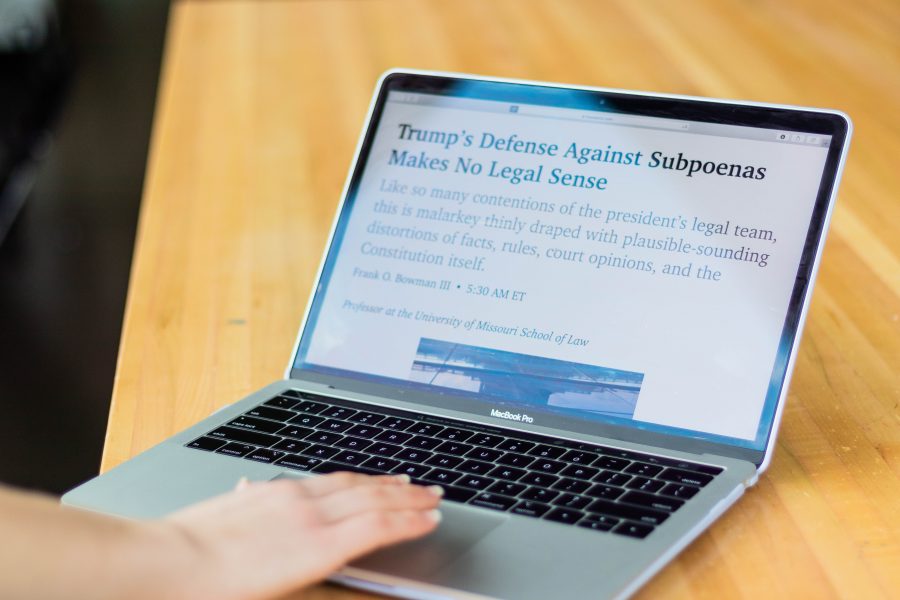Op-Ed: Media’s Role in 2020 Politics
January 28, 2020
As someone who will be eligible to vote in the 2020 presidential election, I find myself in a difficult predicament.
The 2018 midterm elections had the highest rate of voters between the ages of 18-29, with a turnout 10 percent higher than the 2014 midterms.
While the increase in young people voting is a positive change, I cannot help but wonder why more people are coming out to vote. Is it because they truly believe their candidate is the most qualified or because they want to prevent a different candidate from being in office?
President Donald Trump’s election in 2016 has been controversial, especially since Democratic candidate Hillary Clinton won the popular vote by almost three million votes.
The controversy surrounding Trump did not cease after his election. In fact, his impeachment trial recently began following months of controversy around his actions as president.
The impeachment trial will likely not have an effect upon Trump’s eligibility for re-election because, as of now, Democrats do not have the votes to remove him from office. For this to happen, a two-thirds majority of the Senate must vote in favor of his removal.
“That is highly unlikely in this case. No Senate Republicans have indicated they may vote to convict the leader of their party. Should all 100 senators vote, at least 20 Republicans and all the Democrats and independents would have to vote against him,” a recent Reuters article reported.
I fear the publicity surrounding Trump’s impeachment trial will cause voters in the 2020 election to cast their ballot based on the publicity of the impeachment trial rather than their personal beliefs.
Social media and news outlets have experienced tremendous growth in recent years, while also greatly complicating recent elections.
Trump’s tendency to share his voice using Twitter as a platform is no secret, but his opponents have taken advantage of the media as well.
Senator Elizabeth Warren of Massachusetts—one of Trump’s Democratic opponents in the upcoming election—has also used Twitter to promote her ideas, yet she has not faced the same backlash as Trump.
Cited in a Fox News article, Warren tweeted, “On day one of my presidency, I will take aggressive steps to root out the corruption and incompetence of the Trump administration, starting by removing all political appointees, except those necessary to preserve continuity and protect national security.”
Warren is clearly entitled to her beliefs, and it makes sense that she would disagree with many of Trump’s policies and actions.
What I have trouble understanding is why Warren has not faced the same backlash from news outlets for using Twitter that Trump has.
When citizens cast their ballots this fall, most of them will have been exposed to many of the negative comments made about Trump. This could have an effect on how people vote.
I find myself immensely concerned for this year’s election because it has become a war on candidates’ character. Instead of being swayed by media, voters should make their decision based off of personal values.
As a young woman who will live with the consequences of the 2020 election, I have little faith in my generation’s ability to put unwarranted criticisms aside and cast their vote for the candidate that best embodies their beliefs.
The future is changing with technology and the growth of media –– the question remains, will we let it break us?


























































